#enneagram test
Text
thanks for the tag, @nightmarefuele !
ENNEAGRAM TYPE
THE BATKID: Type 7 / Wing 8
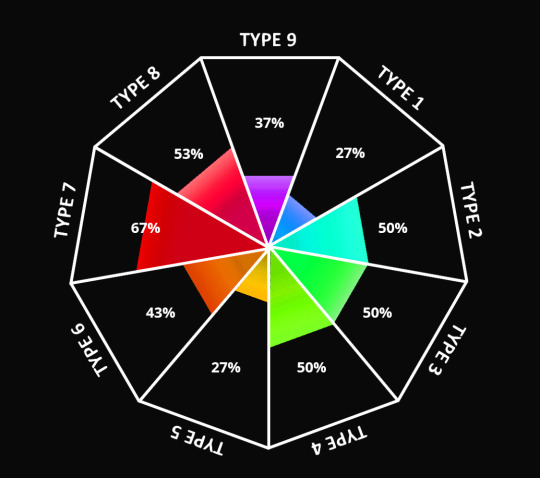
Basic Fear
Seven with an eight wing fear being deprived. They want to pursue new opportunities and avoid being controlled by schedules.
Basic Desire
Their basic desire is to content and satisfied. They love experiencing the world by traveling and going to parties. Opportunists defend themselves by justifying others’ negative actions and rationalizing away bad feelings.

7w8 Personalities Tend To...
Prioritize optimism and gratification
Seek opportunity and experience
Be afraid of missing out
Love the company of others
Justify negative actions and feelings
Strengths
Staying high-energy and positive
Natural self-confidence and charisma
Ability to assert themselves
Remaining calm in situations of crisis
Weaknesses
Being perceived as impatient and blunt
Focusing too heavily on career as the Batkid
Difficulty following through on plans
Tendency to focus on material items
source can be found here.
test can be found here.
Feel free to do this yourself if you want!
7 notes
·
View notes
Text
NEGATIVE ENNEAGRAM TEST
Enneagram Tests are often criticized for focusing too much on the positive aspects of a person’s character. Are you ready to face your Enneagram dark side?

((Thank you for the tag @stxrksarc this was very interesting!
So Scott tied between Type 2 “The Helper/The Giver” and Type 7 “The Enthusiast/The Adventurer”. There’s loads of traits than come with both of these, and some relate to him more than others. The entire list is under the cut.))
Enneagram Type 2 is characterized by a deep-seated desire to connect with others by offering assistance and support. While this personality type is known for their kindness, generosity, and empathy, the negative aspects of their nature can create challenges in both their personal lives and relationships.
Overly Self-Sacrificing: Strong inclination to prioritize others' needs over their own, often to the detriment of their own well-being.
Validation Seeking: Seeking approval and validation from others by constantly helping and being indispensable.
Boundary Issues: Difficulty setting healthy boundaries, leading to emotional exhaustion and burnout.
Ignoring Personal Needs: Neglecting their own needs and desires while focusing excessively on fulfilling others'.
Fear of Rejection: Constantly fearing rejection or abandonment if they don't meet others' needs.
Burnout: Constantly overextending themselves without proper self-care, leading to burnout.
Validation Addiction: Becoming addicted to the emotional highs they get from being needed and appreciated.
Enneagram Type 7 is characterized by a strong desire for novelty, excitement, and avoiding discomfort. While this personality type possesses many strengths such as creativity, optimism, and a sense of adventure, the negative aspects of their nature can create challenges in both their personal lives and relationships. 
Avoidance of Negative Emotions: Tendency to avoid facing negative emotions by seeking distractions.
Restlessness: Struggling with being fully present, and always seeking new experiences.
Overcommitment: Engaging in numerous activities simultaneously, often to the point of exhaustion.
Disregarding Consequences: Ignoring potential negative outcomes in favor of immediate enjoyment.
Impulsiveness: Making hasty decisions based on excitement rather than careful consideration.
Unrealistic Optimism: Ignoring potential pitfalls due to a focus on positive outcomes.
Tagging (no pressure): @inz-lokisdottir @guardian-rocket @redxinmyledger @supremestrangeness @thisisthewade @og-ant-man @benevolentgodloki @thegrandharveyspecter and anyone else who wants to play
Type 2
Their negative aspects tend to take the following forms:
* Overly Self-Sacrificing: Strong inclination to prioritize others' needs over their own, often to the detriment of their own well-being.
* Validation Seeking: Seeking approval and validation from others by constantly helping and being indispensable.
* Manipulative Behavior: Tendency to manipulate situations and emotions to feel needed and valued.
* Hidden Agenda: Helping others with the underlying expectation of receiving appreciation or reciprocation.
* Boundary Issues: Difficulty setting healthy boundaries, leading to emotional exhaustion and burnout.
* Resentment: Developing resentment when their efforts aren't acknowledged or reciprocated as expected.
* Ignoring Personal Needs: Neglecting their own needs and desires while focusing excessively on fulfilling others'.
* Fear of Rejection: Constantly fearing rejection or abandonment if they don't meet others' needs.
* Dependence on Others' Approval: Relying on external validation for their sense of self-worth and identity.
* Loss of Authenticity: Suppressing their own feelings and opinions to cater to others' preferences.
* Emotional Manipulation: Using emotions to control situations, often making others feel guilty for not complying.
* Avoiding Conflict: Going to great lengths to avoid conflict and disagreements, even at their own expense.
* Loss of Identity: Struggling to distinguish their own desires and identity from those they help.
* Exaggerated Selflessness: Displaying excessive selflessness to the point of denying their own needs altogether.
* Emotional Volatility: Swinging between feelings of selflessness and moments of frustration or anger.
* Martyr Complex: Adopting the role of the martyr, using their sacrifices to garner sympathy and attention.
* Conditional Giving: Giving with strings attached, expecting something in return for their help.
* Neglecting Self-Reflection: Focusing so much on others that they fail to reflect on their own feelings and motivations.
* Unhealthy Attachments: Forming co-dependent relationships based on their role as the caregiver.
* Burnout: Constantly overextending themselves without proper self-care, leading to burnout.
* Loss of Autonomy: Feeling trapped by their need to be needed, which can hinder their personal growth.
* Fear of Abandonment: Worrying that if they stop helping, they'll be abandoned or unloved.
* Validation Addiction: Becoming addicted to the emotional highs they get from being needed and appreciated.
Type 7
Their negative aspects tend to take the following forms:
* Avoidance of Negative Emotions: Tendency to avoid facing negative emotions by seeking distractions.
* Restlessness: Struggling with being fully present, and always seeking new experiences.
* Superficial Gratification: Pursuit of pleasure and novelty for immediate gratification.
* Escapism: Using distractions, such as excessive planning or indulgence, to evade discomfort.
* Fear of Boredom: Strong aversion to routine or mundane activities, fearing boredom.
* Overcommitment: Engaging in numerous activities simultaneously, often to the point of exhaustion.
* Difficulty with Commitment: Struggle with committing to long-term projects or relationships.
* Disregarding Consequences: Ignoring potential negative outcomes in favor of immediate enjoyment.
* Impulsiveness: Making hasty decisions based on excitement rather than careful consideration.
* Avoidance of Pain: Evading emotional pain or discomfort by focusing on positive experiences.
* Difficulty Processing Emotions: Struggling to process and express deeper emotions.
* Shallow Connections: Forming many social connections but rarely developing deep relationships.
* Fear of Missing Out: Anxiety about missing out on new experiences or opportunities.
* Ignoring Practicalities: Neglecting practical responsibilities in pursuit of excitement.
* Dependency on External Stimuli: Relying on external sources for happiness and satisfaction.
* Perpetual Searching: Always searching for the next best thing, leading to dissatisfaction.
* Escalation of Escapism: Escaping into fantasies or overindulgence during times of stress.
* Lack of Follow-Through: Difficulty completing tasks that lose their initial appeal.
* Avoidance of Negative News: Avoiding negative news or situations that disrupt positivity.
* Difficulty with Intimacy: Struggling to engage in deep emotional intimacy due to avoidance of pain.
* Resistance to Discomfort: Unwillingness to face discomfort or negative emotions head-on.
* Fear of Being Trapped: Anxiety about being tied down or limited in their choices.
* Loss of Perspective: Getting caught up in the pursuit of pleasure, neglecting long-term goals.
* Vulnerability Aversion: Reluctance to reveal vulnerabilities or fears to others.
* Unrealistic Optimism: Ignoring potential pitfalls due to a focus on positive outcomes.
#ant man got tagged#ant mun got tagged this time#scott lang#ant-man#headcanon#negative enneagram test#enneagram test#enneagram type 2#enneagram type 7#ant man#antman
11 notes
·
View notes
Text

When pain becomes power.
#p#enneagram test#type 4#the individualist#when you are too unique that you become a once in a lifetime experience
5 notes
·
View notes
Photo


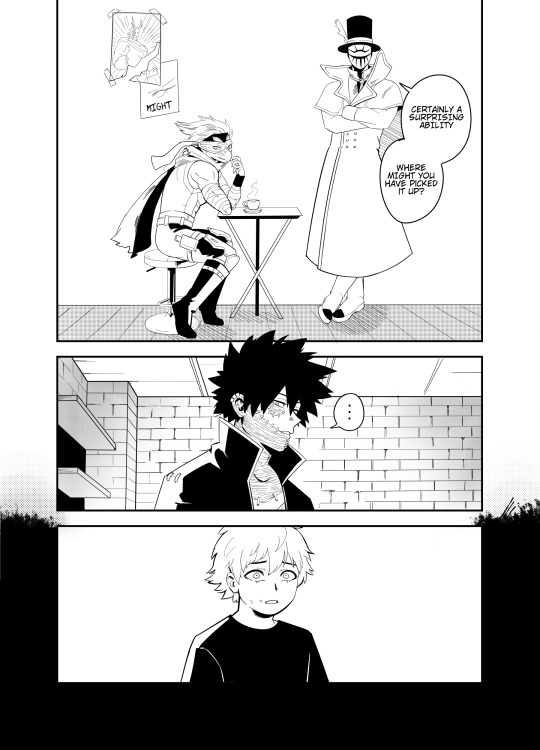

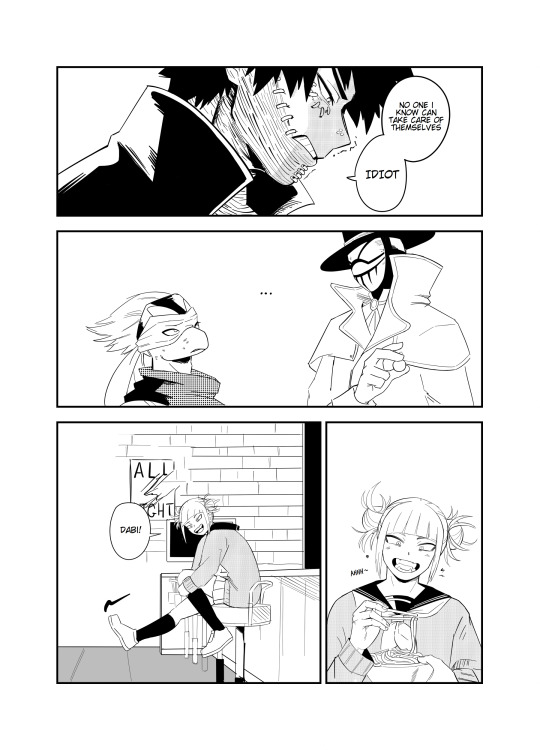
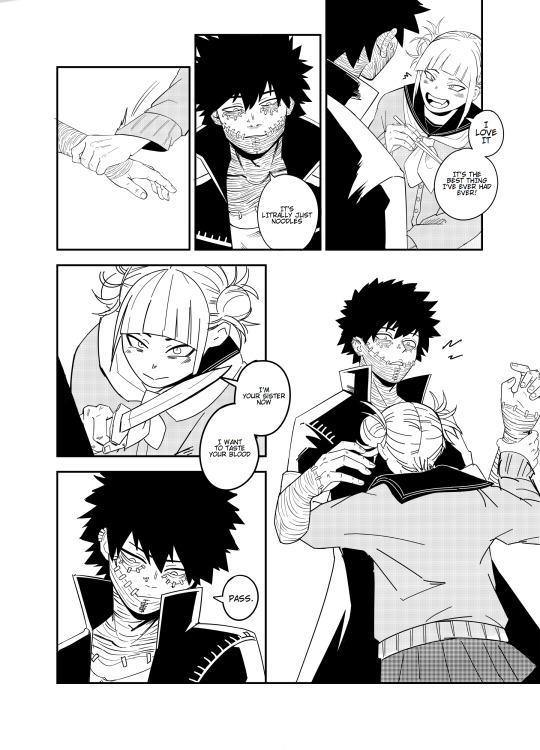
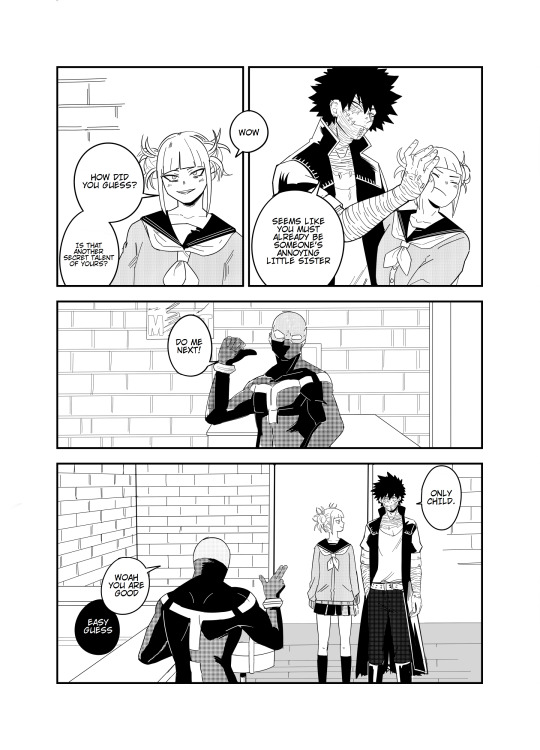

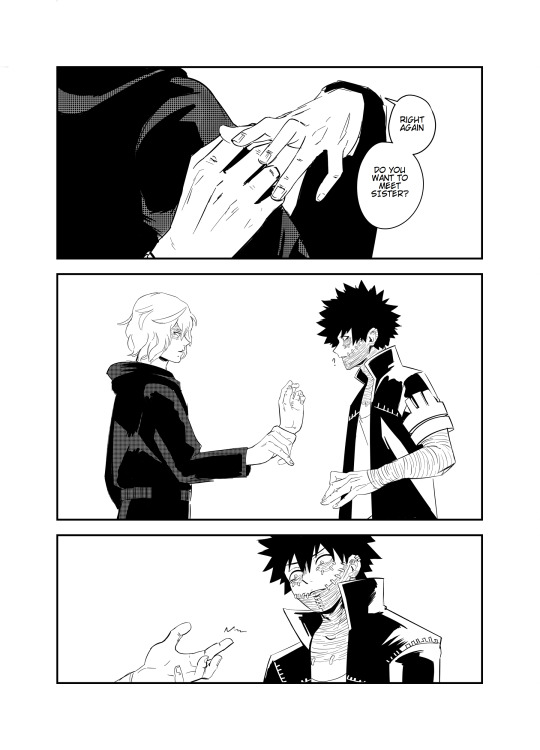
Average day at LOV headquarters
#yes i know this is ooc#Fucked up dabi's jacket on the first page but im not fixing that shit lol#the cover took at long to make as an entire comic page#also can you tell what pages i drew first based on how i get better at drawing the mha style#at least i feel like i can see that#my fav panel is the younger brother cold read one#its the last one i drew#mha dabi#touya todoroki#tw domestic violence#my hero acedamia#this is the art tag#boku no hero fanart#also i started reading MHA because i matched 1:1 with shiggy on every personality test (MBTI enneagram rulen shit like that)#and was looking on a personality databse for what character matched me to most#add mha to the list of series in which the good side are those seeking to preserve the status quo and the villains are people with#legit grievances and a desire to make society better but then have the villains inexplicably like. fight children so we know they are bad#and the end resolution is that society is fine and everything was an individual problem not a systematic one#also fuck endeavor redemption arc#and while enji may SAY it doenst matter if hes forgivven the story SHOWS that it does matte#In the manga Shoto literally explicitly says that if he didn't forgive Enji then he would be as bad as Dabi#and Deku says that what enji did in the past donest matter cause he was nice to him#and the only thing Natsu says against endeavor is that he neglected his kids when thats literally the least of his crimes#and while people see this as a Get Endeavor moment the way the whole arc is framed you're supposed to see Natsu as unresonable#it's why hes shown to be angry and hitting walls and endevor is perfectly calm#the narrative of the story brushes all the truly awful shit away and pretends like it didnt happen#i seriously doubt the fact the Endeavor human trafficked his wife then beat her to the point she was afraid of her own kids for looking like#him will ever be adressed#Rei literally bowed in apology to Hawks for what Touya did shes treated like shit by the narrative#also the fact that Deku explicitly states that none of the shit Enji did in the past mattered because he was a good mentor is such bullshit
984 notes
·
View notes
Text
Enneagram Types (Part 2)
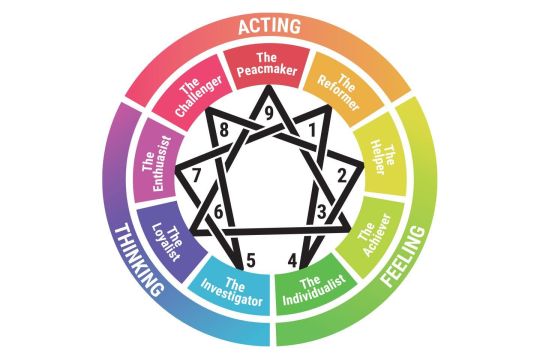
Here’s a description of each Enneagram type, including their core motivations, fears, desires, and typical behaviors, along with information about their wings:
Type 6 - The Loyalist:
Core Motivation: Sixes seek security, guidance, and support. They strive to find safety and stability in their environment and relationships.
Core Fear: Sixes fear being abandoned, unsupported, or without guidance. They may worry about potential dangers and uncertainties.
Core Desire: Sixes desire to have security, certainty, and trust. They long for reassurance and reliable relationships.
Typical Behaviors: Sixes are loyal, responsible, and often seek guidance from authority figures or trusted individuals. They may be cautious, vigilant, and prepared for potential risks.
Wing 5 (6w5): The Defender
Fives bring an intellectual and independent dimension to Sixes. They may have a more withdrawn and observant approach to their loyalty and may seek knowledge to feel more secure.
Wing 7 (6w7): The Buddy
Sevens add an adventurous and optimistic element to Sixes. They may seek distraction from anxieties and look for exciting experiences to balance their need for security.
Type 7 - The Enthusiast:
Core Motivation: Sevens seek pleasure, excitement, and new experiences. They strive to avoid pain and discomfort and seek fulfillment in the present moment.
Core Fear: Sevens fear being trapped, limited, or missing out on opportunities. They may avoid facing difficult emotions or situations.
Core Desire: Sevens desire to be happy, satisfied, and fulfilled. They long for freedom and a sense of abundance.
Typical Behaviors: Sevens are enthusiastic, spontaneous, and often have a wide range of interests. They enjoy seeking new experiences, possibilities, and tend to be optimistic.
Wing 6 (7w6): The Entertainer
Sixes bring a practical and security-oriented dimension to Sevens. They may have a more cautious approach to their enthusiasm and may seek support and guidance in their pursuits.
Wing 8 (7w8): The Realist
Eights add a bold and assertive element to Sevens. They may be more focused on power and assertiveness in their pursuit of pleasure and may have a stronger desire for control.
Type 8 - The Challenger:
Core Motivation: Eights seek control, independence, and protection. They strive to avoid vulnerability and stand up for themselves and others.
Core Fear: Eights fear being controlled, manipulated, or vulnerable. They may worry about being taken advantage of or appearing weak.
Core Desire: Eights desire to be strong, self-reliant, and in control. They long for justice, fairness, and protection for themselves and those they care about.
Typical Behaviors: Eights are assertive, confident, and often take on leadership roles. They have a strong presence and tend to be direct and confrontational.
Wing 7 (8w7): The Maverick
Sevens bring an adventurous and pleasure-seeking dimension to Eights. They may have a more lighthearted and optimistic approach to their assertiveness and desire for control.
Wing 9 (8w9): The Bear
Nines add a calming and harmonizing element to Eights. They may have a more grounded and receptive approach to their assertiveness and desire for control.
Type 9 - The Peacemaker:
Core Motivation: Nines seek inner and outer peace, harmony, and avoidance of conflict. They strive for comfort and a sense of unity with others.
Core Fear: Nines fear conflict, disconnection, or loss of peace. They may avoid asserting themselves or facing difficult emotions.
Core Desire: Nines desire to have inner stability, peace, and to maintain their relationships. They long for a sense of wholeness and unity.
Typical Behaviors: Nines are easygoing, agreeable, and often go along with others' preferences. They seek to maintain harmony and may merge with others' opinions.
Wing 8 (9w8): The Referee
Eights bring a stronger assertiveness and a desire for power to Nines. They may be more willing to stand up for themselves and others and may have a stronger sense of individuality.
Wing 1 (9w1): The Dreamer
Ones bring a sense of responsibility and a desire for order to Nines. They may strive for personal improvement and may have higher standards for themselves and their relationships.
Remember that individuals may vary within each type, and the wings offer additional dimensions to their core motivations. The Enneagram system is a tool for self-awareness and personal growth, helping individuals understand their patterns of thinking, feeling, and behaving.
Stay tune for Enneagram posts.
xoxo
J.
#enneagram#enneagram type 6#enneagram type 7#enneagram type 8#enneagram type 9#self discovery#self help#personal growth#personality types#personality test#6w5#6w7#7w6#7w8#8w7#8w9#9w8#9w1#The Loyalist#The Enthusiast#The Challenger#The Peacemaker
123 notes
·
View notes
Text
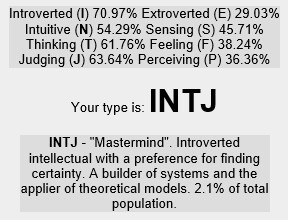
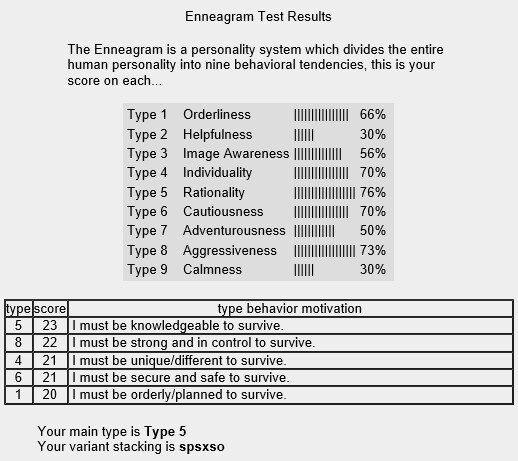
This test is probably the best MBTI + Enneagram test out there due to how extensive and intensive the questions are.
I test as INTJ with ISTJ as a close second. My enneagram is 5w4 with a 584 tritype. My social variant is sp/sx.
148 notes
·
View notes
Text
100% 5 AND 99% 4 HOLY SHIT??? higher than average percentages on 6 and 9 is so true aswell wow
source: advanced-personality.com
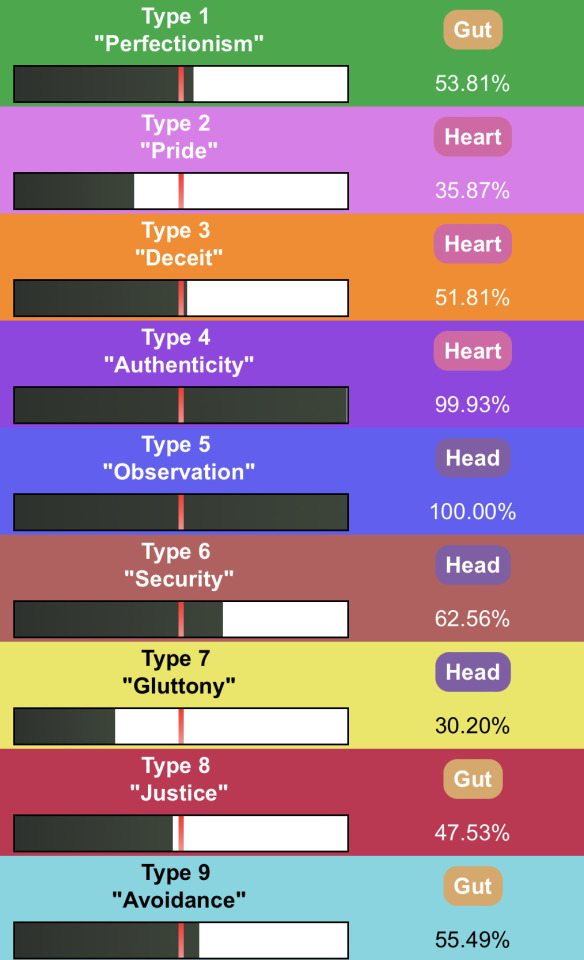
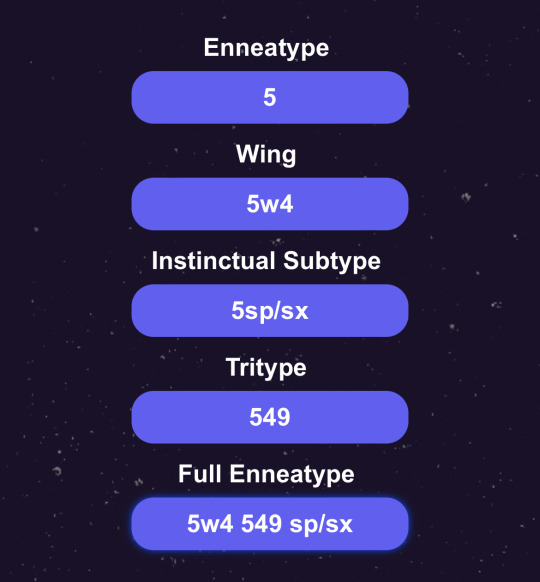
#typology#enneagram#btw for those who dont know me i have studied the enneagrams and i can confidently say i am a 5w4 sp/sx but im skeptical of tests so i was#pleasantly surprised to see this result#sleepy vix#5w4#enneagram 5#sp/sx#instinctual variants#also i did think i was a 549 tritype but my knowledge on tritypes wasnt veryyy strong but maybe i will pick up typology again#to study tritypes
81 notes
·
View notes
Text
hi does anyone want my bad kids enneagram thoughts
#and i'm talking i guess#the enneagram is a personality test that's funky and works more with your coping mechanism and also someone wrote an album about it
10 notes
·
View notes
Text
years ago i did the mbti-personality test & according to it i was an infp, just now i did it again because i thought 'you know, a few years have passed & i've gotten to know myself better - gotten quite a bit less shy, a bit more extroverted, a bit more daring, etc., so i'm sure i'd get a much different result now'. but no, i'm still an infp apparently
#i do know that you cant really trust this test since there hasn't been proper research on it (as far as im aware)#but i still think its pretty fun that years can pass#& that i can change so much as a person that i cant even fathom the person i once was#cause the me from years ago pretty much was a different person alltogether it seems to me#but still have the same result nonetheless#i guess im surprised cause the result never felt quite right to me for some reason (still doesnt really)#but anyway#according to enneagram im a 4w5#which does fit me i feel#infp#infp 4w5#mbti types#ramble
10 notes
·
View notes
Text

shifted some dragons around and this my new total of completed vs not completed bios 😀
#this isn't counting my breeding pairs either bc they're in their own tab#i decided to be extra and put their enneagrams and mbtis in their bios so i'm doing those tests 32 more times. that's fun /s /nm.#it's fun but it takes FOREVER. answering the questions does make me develop their personalities a bit more tho which is rly fun#rly gotta think abt how they'd answer it yknow#sassy speaks#fr#flight rising#lots of lore i have to write too which always seems daunting but then the second i start it's just a stream of consciousness
7 notes
·
View notes
Text
Free Enneagram test btw
Feel free to tag with your "wing" if you want
46 notes
·
View notes
Text
if you don't know what an enneagram is, it's like a personality typing that's separated into 9 types based on your core motives and fears and how you learned to interpret the world from a young age. it gets a lot more intricate, but that's the jist.
don't know or remember what your type is?? take the test here!
(these tests are not always reliable, so if you're genuinely curious and want to put a bit more time into reading all the types and seeing which feels most fitting, I recommend it!)
31 notes
·
View notes
Text
Informações do Eneagrama]
Tipo Um
Tipo 1 saudável: o cidadão íntegro
trabalham duro, fazem mais do que se espera deles; termina a maioria das coisas que começa; ético
Tipo Médio 1: O Perfeccionista
limpo, arrumado, pontual, organizado; responsável, consciencioso, tenta viver de acordo com a moral
Tipo 1 insalubre: o anal-retentivista
rígido, inflexível, obsessivo compulsivo, excessivamente tradicional
Tipo Dois
Tipo Saudável 2: O Humanitário
compaixão no panorama geral; quer fazer a diferença no mundo não apenas com seus entes queridos
Tipo Médio 2: O Ajudante
atencioso, compassivo; sensível às necessidades dos outros, especialmente dos entes queridos
Tipo 2 doentio: o mártir
não tem identidade fora dos relacionamentos e se desfará com a perda desses relacionamentos
Tipo Três
Tipo Saudável 3: O Artista
impressionante sem ser arrogante, consegue lidar facilmente com os holofotes, artista/artista habilidoso.
Tipo Médio 3: O Histriônico
preocupado com fama, prestígio, status/atratividade social; quer que os outros os considerem impressionantes.
Tipo 3 insalubre: o invejoso
anseia pelo que não tem; competitivo; invejoso; agirá de forma inadequada para chamar a atenção
Tipo Quatro
Tipo Saudável 4: O Revolucionário
ousado, inovador, inovador, criativo/artístico, intuitivo
Tipo Médio 4: O Não Convencionalista
diferente, idiossincrático, experimental, único, aberto
Tipo 4 insalubre: o estranho
isolado da realidade, delirante, bizarro/esquizotípico/esquizofrênico, irracional, masoquista
Tipo Cinco
Tipo 5 Saudável: O Inovador
descobre/desenvolve novas tecnologias ou sistemas de pensamento que são úteis para outros
Tipo Médio 5: O Intelectual
gosta de discussão/debate filosófico, infinitamente curioso, adora aprender, atencioso
Tipo 5 doentio: o niilista
luta com a falta de sentido da existência, desapegado, hermético, frio, desprovido de sentimentos
Tipo Seis
Tipo Saudável 6: O Especialista em Segurança
vê os perigos antes dos outros, hábil em evitá-los, capaz de bravura
Tipo Médio 6: O Cuidador
seguro, protegido, estável, confiável, previsível, cauteloso
Tipo 6 doentio: o paranóico
desconfiado, ciumento, em teorias da conspiração, inseguro, medroso, errático
Tipo Sete
Tipo Saudável 7: O Aventureiro
destemido, cheio de energia, vive plenamente o momento, improvisado, infinitamente otimista
Tipo Médio 7: O Caçador de Emoções
emocionante, divertido, alegre, exploratório, espontâneo, loquaz
Tipo 7 doentio: o hedonista
escapista, hedonista, evita responsabilidades, problemas de saúde em decorrência dos citados
Tipo Oito
Tipo Saudável 8: O Líder
assertivo, dominante, destemido, poderoso
Tipo Médio 8: O Desafiador
intimidador, propenso à raiva, não recua, sarcástico, desafiador
Tipo 8 insalubre: o valentão
viciado em raiva, controlador, abusivo, violento
Tipo Nove
Tipo Saudável 9: O Estóico
silenciosamente forte, deixa os outros à vontade, sábio, mediador habilidoso, despretensioso
Tipo Médio 9: O Monge
agradável, tranquilo, plácido, pacífico, agradável, fundamentado
Tipo 9 prejudicial à saúde: o preguiçoso
preguiçoso, passivo, irresponsável, subdesenvolvido, perdido, espacial, excessivamente complacente
para mais informações sobre o sistema Eneagrama clique aqui
Para fazer outro teste de personalidade clique aqui
casa | contato | informações
@returning-tonowhere Olha, miga.🌸
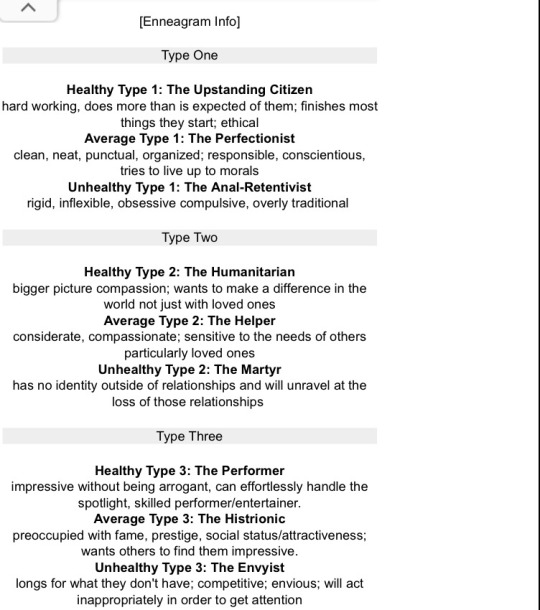
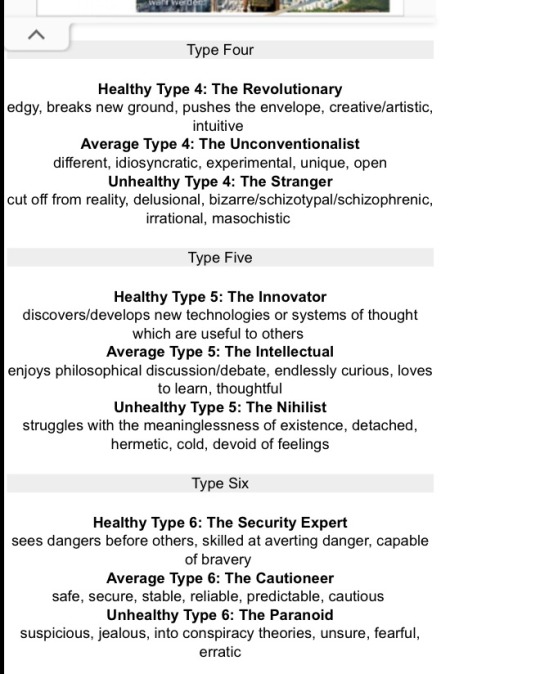

7 notes
·
View notes
Text
i just found a super cool personality test app (and you know that’s my weakness) — i still need some more friends on it to unlock all features, check it out here!
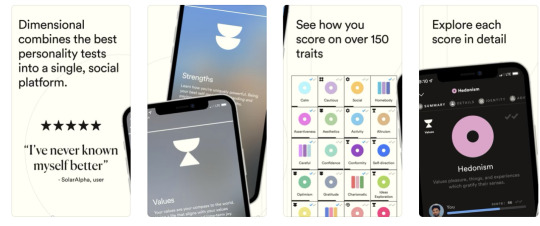
#personality#studyblr#mbti#love#relationships#enneagram#personality test#app#dimension#dimensional#fun#game#recommendation#inspiration#new year
65 notes
·
View notes
Text
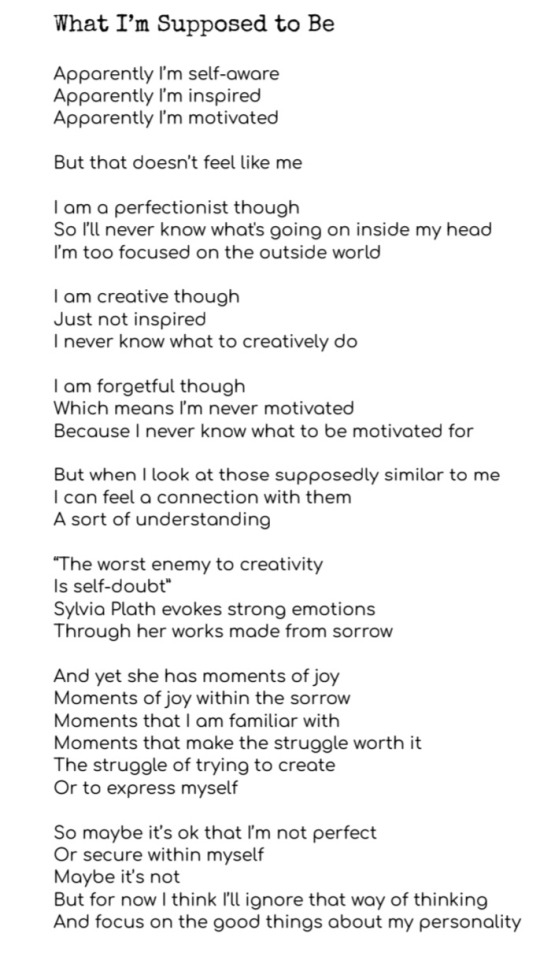
Poem based off of my Enneagram results and what they meant

#i had to take the test and then write a poem about my reults for my writing class#we had to write about what the results said supposedly said about us and if they were actually true#needless to say. mine were a wee bit off#original writing#original poems#original poetry#enneagram#original content#original work#poetry#free verse poetry#free verse#free verse poem#queer poems#queer poets on tumblr#gay poetry#poetry.docx
24 notes
·
View notes
Note
hi hi!! i'm curious: what's your sun sign? what's an album that has no skips? and what's your favorite dessert? ♡
hi!!
i'm a gemini lmao.
vertigo by eden has like never been skipped at all for me. icarus and wings are my two favorite songs on there. (preachers daughter by ethel cain is a close second, but ngl i always skip the outro to thoroughfare so idk if i can count that.....)
as a kid we always had ice cream for dessert, and though it's probably not like a "proper" dessert or anything, i think i'll have to go with that. plain chocolate is my favorite! otherwise, cookie dough (:
if anyone else would like to participate here's the post!
#core responds#ask game#lowkey always scared to admit i'm a gemini because then i get insta hated#which is scary for someone who doesn't really keep up with astrology at all#just recently had to take an enneagram test tho#and i know my myers briggs#that's about it tho
6 notes
·
View notes